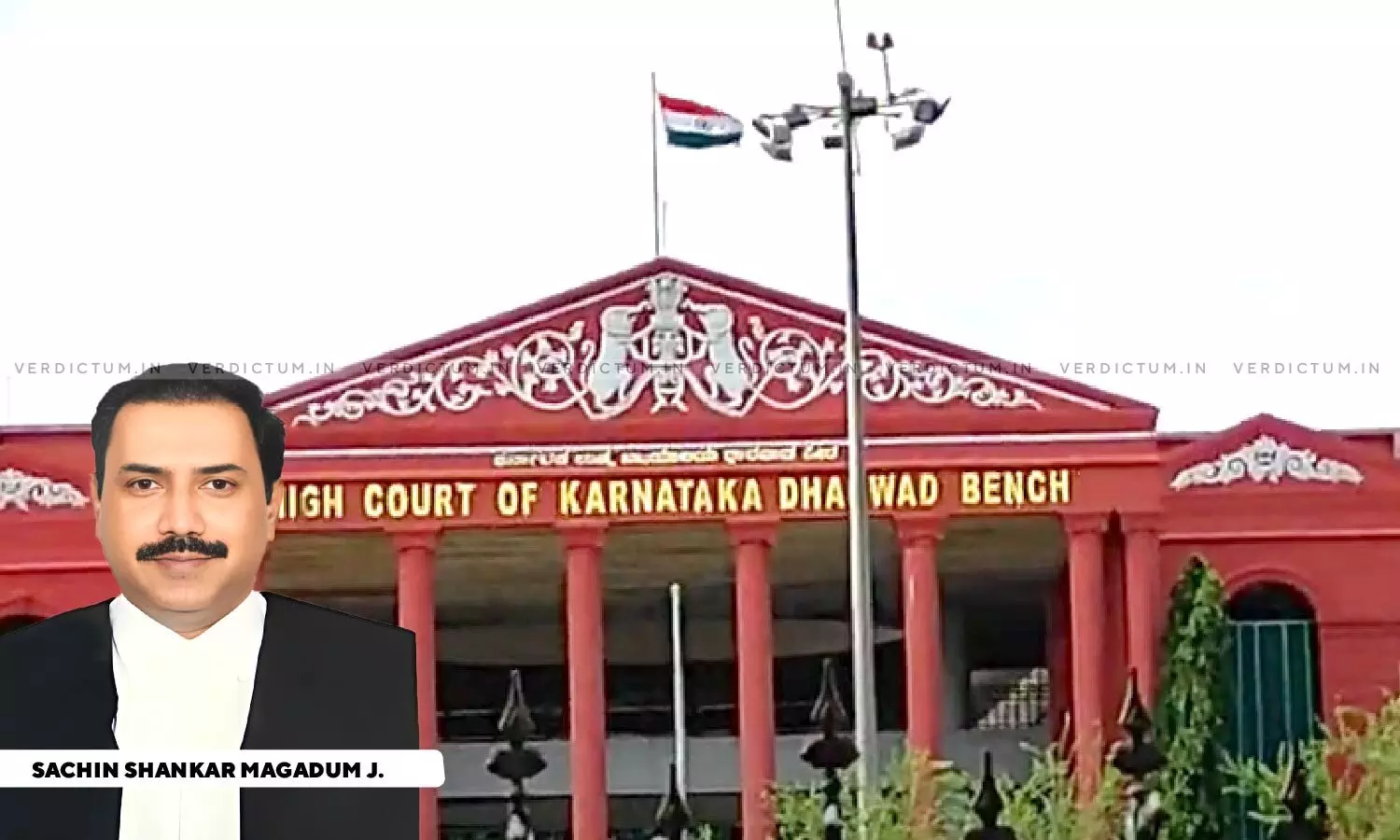
Pre-Deposit Of Any Percentage Of Fine or Penalty Not Required While Filing Appeal U/S 107(6) CGST Act When Appellant Contests Entire Tax Liability: Karnataka HC
 |
|The Karnataka High Court held that, under Section 107(6)(b) of the Central Goods and Services Tax Act, 2017, the appellant is not required to pre-deposit any percentage of fine or penalty imposed if entire tax liability is contested.
The Dharwad Bench was dealing with a writ petition filed by M/s. Tejas Arecanut Traders against the Joint Commissioner of Commercial Taxes.
A Single Bench of Justice Sachin Shankar Magadum observed, “... the order under challenge is not sustainable. There is no need for the petitioner to deposit any percentage of disputed interest, fine, fee and penalty arising from the impugned order. In essence, the legislative intent as construed from Section 107(6)(b) of the CGST Act is that aggrieved party has to pre-deposit 10% of the tax liability and it does not extend to penalties, fees or interest when the petitioner has contested the entirety of the tax liability."
Advocate Sameer Gupta represented the petitioner while AGA Shivaprabhu S. Hiremath represented the respondents.
In this case, the appellate authority while examining the maintainability of the appeal under Section 107(6) of the CGST Act, declined to admit the appeal of the company on the ground that it had failed to comply the mandate of pre-deposit. It, therefore, declined to admit the appeal filed by the company under the said Section.
The counsel for the company reiterating the grounds urged in the writ petition, contended that the order of the appellate authority calling upon the company to deposit 10% of Rs. 1,41,11,633/- was one without the jurisdiction and therefore, pointed out that the impugned order was in disregard to Section 107(6) of the CGST Act.
The High Court after hearing the contentions of the counsel said, “If the intention were to impose a 10% pre-deposit on these consequential elements, the legislator could have explicitly included them in sub-clause (b). … By isolating "a sum equal to ten per cent of the remaining amount of tax in dispute" in sub-clause (b), the legislator conveys a focused pre-deposit requirement specifically related to the disputed tax amount.”
The Court added that the legislative design prioritizes the financial commitment associated directly with the primary tax liability being contested and that such an approach aligns with the legal principle that penalties, fines, fees, and interest are subsequent to the determination of tax.
“In essence, the legislative intent, as inferred from the wording of the provision, leans towards requiring a pre-deposit of 10% solely on the disputed tax amount, reflecting a clear understanding that these consequential elements are inherently linked to the imposition of tax and, therefore, do not warrant a separate pre-deposit under sub-clause (b)”, also said the Court.
Furthermore, the Court noted that the appellate authority was not justified in calling upon the petitioner company to deposit 10% of not only tax liability but also fine which is imposed by the Enforcement Officer equivalent to the value of the goods.
"The intentional exclusion of disputed interest, fine, fee, and penalty from sub-clause (b) of Section 107(6) of the CGST Act signifies a crucial legislative distinction. Analyzing this deliberate separation provides insights into the lawmaker's clear intent regarding the nature and scope of the pre-deposit obligation in appeals. In legal interpretation, statutes are construed to give effect to the legislative intent. The absence of any reference to disputed interest, fine, fee, and penalty in sub-clause (b) suggests a meticulous legislative choice”, observed the Court.
The Court concluded that if the order passed by the appellate authority under challenge is accepted, then the condition under clause (b) giving an option to the aggrieved person who disputes the entire tax liability to deposit 10% of the remaining amount of tax in dispute would be defeated.
Accordingly, the High Court allowed the writ petition, set aside the impugned order, and directed the appellate authority to admit the appeal and decide the same in accordance with law.
Cause Title- M/s. Tejas Arecanut Traders v. Joint Commissioner of Commercial Taxes & Anr.